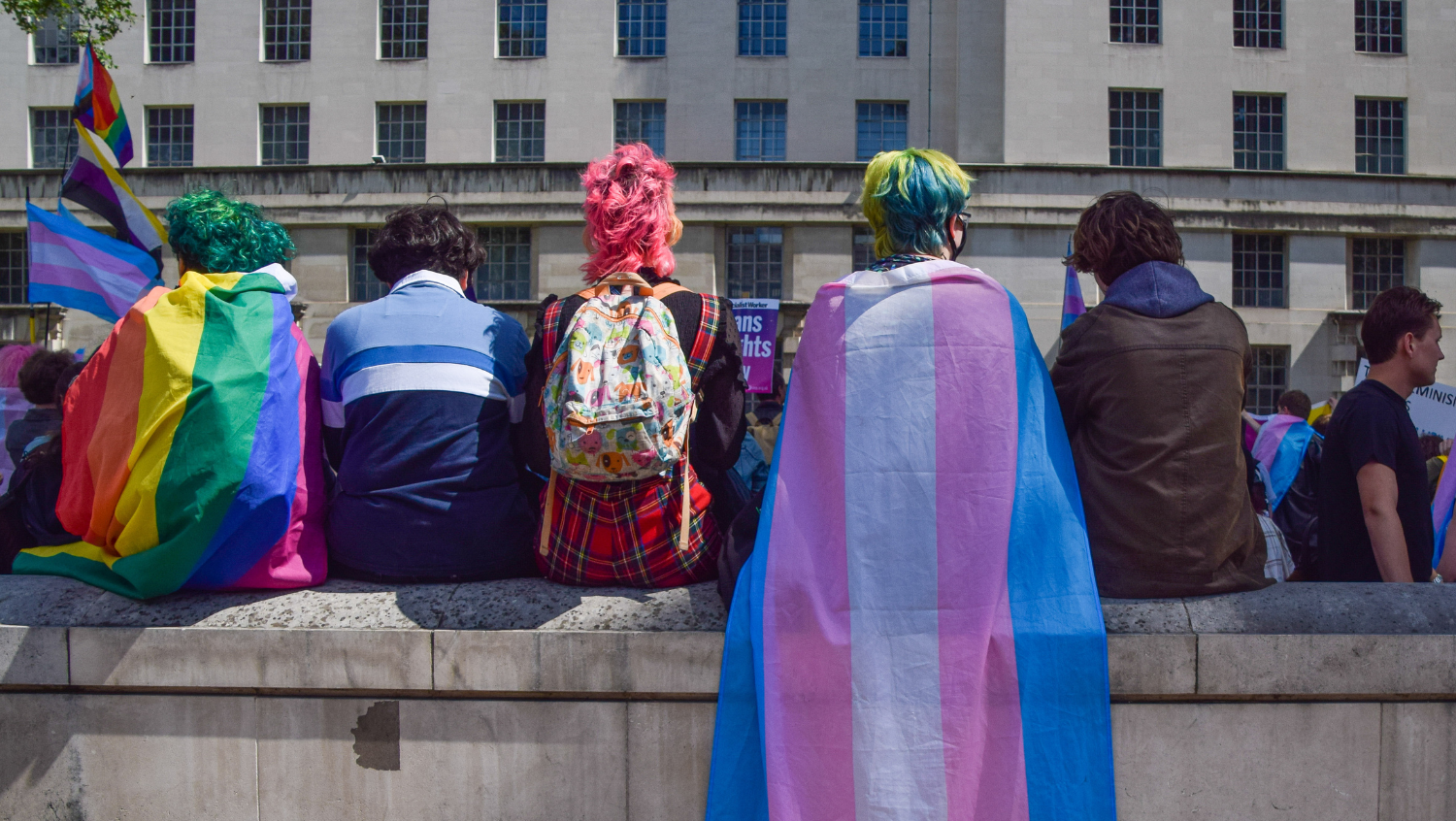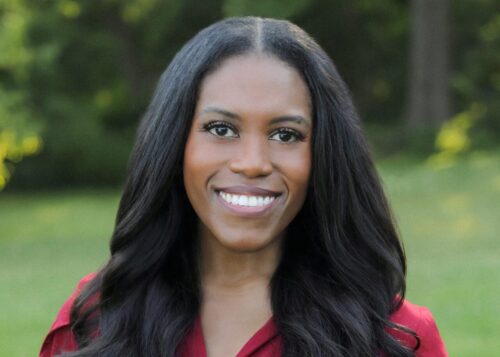Why BMC's Center for Transgender Medicine and Surgery Just Changed Its Name
May 18, 2023
By Katie Dillon

SOPA Images, Getty Images
The center's new name offers a more comprehensive and inclusive lens on gender care, focused on the whole person.
In 2013, Medicare issued an executive order lifting the exclusion of coverage for gender-affirming care, and many insurers, including MassHealth, soon followed suit. In 2016, with this improved insurance coverage as the backdrop, former Boston Medical Center endocrinologist Josh Safer, MD, BMC urologist Robert Oates, MD, and nurse liaison Pam Klein, RN, MSN, helped found the Center for Transgender Medicine and Surgery. The Center is a comprehensive health center that worked to provide medical care for transgender people at BMC. In 2023, conversations around gender have grown more nuanced as several states around the U.S. have begun banning gender-affirming care, expressions of gender fluidity, and gender diversity. As a result, the Center has been thinking critically about how its name can better encompass the diversity of the gender experience and the breadth of care it provides.
In late March, the Center changed its name. It is now the GenderCare Center (GCC). To better understand the reasons behind the name change and the considerations behind it, HealthCity spoke with Klein; Beth Cohen, MD, the GenderCare Center’s medical director; patient navigator Jordan Bensley; and behavioral health lead Meghan McGrath, LICSW.
HealthCity: Can you elaborate on some of the ways that the former name, the Center for Transgender Medicine and Surgery, wasn’t the best fit for your care model? What considerations did you take to ensure that the “GenderCare Center” was a more fitting name?
Pam Klein, RN, MSN: In the beginning, no one thought much about the name. It was all about getting things going. And remember, too, that the catalyst for this Center when it launched was the insurance changes, so we were able to offer more surgery, specifically, the vaginoplasty surgery. That was the big new thing, and so that played into the name.
But as we grew, it started to feel like the name wasn’t exactly accurate. It wasn’t comprehensive enough, and it was a little too focused on medicine and surgery. As it was framed, it excluded behavioral health and a lot of other things.
Beth Cohen, MD: I started in January 2023, and I felt like the name was not inclusive of the patients we see or representative of the services we provide. When meeting with members of the team, it appeared that the idea of a name change had been a topic of conversation well before I joined BMC. Meghan [McGrath], the team’s behavioral health lead who started in November 2022, and I had a few conversations about the name when we initially met. We decided that we were going to see if we could drive this name change forward.
Meghan McGrath, LICSW: The former name was dated — and that’s not a criticism, this is true of a lot of this work, which changes so quickly. Being trans or gender diverse does not necessarily mean medicine or surgery is needed or wanted.
Jordan Bensley: Especially in this political context, we want people to see that gender-affirming care goes beyond just medical and surgical services. That it is about providing access to care that tries to dismantle political and socio-economic barriers.

Members of the GenderCare Center’s Surgical Team (Boston Medical Center)
BC: Taking the word “transgender” out of the name was important to us as it didn’t accurately reflect the diversity of the people we see. We are not just caring for those that identify within the binary — we’re providing care for all people.
JB: We wanted the name to be more relational, more about our patients, instead of just describing the services we provide. We want people to feel that we are in and behind this work — people serving people — rather than an impersonal system. We want to show that the care we provide really recognizes a whole person and the diversity of their experiences.
HC: Can you elaborate on some of the research methods you used or other ways you determined this new name?
MM: I brainstormed a list. It had 12 to 15 names — some of which were really outside the box and some that were more classically aligned with a medical center. We all went through that list together line by line. Through that process we felt that the word “clinic” made it feel like “this is just stop and get your surgery or your medicine.” That was not representative of the comprehensive care we provide.
“Taking the word ‘transgender’ out of the name was important to us as it didn’t accurately reflect the diversity of the people we see. We are not just caring for those that identify within the binary — we’re providing care for all people.”
PK: We took the final three [name ideas] out and put it them out to some support group venues. So, it felt like we were engaging more, not just us in our little fishbowl making this decision, but we were going out and getting feedback.
JB: Yes, an important part of the process was to not to be an insular group making decisions, especially decisions that affect our patients. I emailed a couple of our community partners about it, to ask “Are we headed in the right direction?” and “Does this make you want to come to our center?” I’m glad that we did that and that our whole team was in support of reaching out into the community for feedback. That’s why I joined BMC, because we are so connected to community. That’s a value of our center: to always operate with active connection to the community. So it felt necessary for us to do that with this name change.
MM: I am someone who works in and of my community, so I was asking friends and running it by queer clinicians, previous colleagues — just getting as much anecdotal data as we could on how people were responding. Then we all came together again in our committee process and really looked at which of those names we felt like we could all get behind.
HC: Why this particular name? Was there any feedback that you heard that resonated with you about the GenderCare Center, as opposed to something else?
JB: One thing that stood out was how much “gender care” — that combination of words — spoke to people. A friend said, “it lets you know you can have your own gender journey within this center.” And it’s true. This is about your own individualized journey and not a prescribed notion of “you have to be trans this one way and you have to get medicine, you have to get surgery.” Instead, it’s saying that “y’all are really seeing me as a whole being outside of this one doctor’s room, that you’re caring for me.” The word “center” is more personable than “medicine” and “surgery.”
“..it’s saying that “y’all are really seeing me as a whole being outside of this one doctor’s room, that you’re caring for me.”
PK: And we wanted to make sure the surgeons would be okay taking surgery out of the name, which they were.
BC: If you look at the name, you can get an idea of what we are and who we are. When spending time analyzing the word choices, you realize that the individual words in the name are important and carry meaning. For example, if you take out the word “care” and consider naming the center Gender Center, that could be interpreted differently or perhaps exclusive. But when you add the word “care” to make it Gender Care Center it feels so much more inclusive.
MM: Something else around the name was the word “center,” and we want to be a center of excellence. And that’s both an insurance term, but also how we want to be viewed in the community. So the word “clinic” for instance, we all kind of balked at and were like, “Nope, nope. No, thank you.” We really wanted it to be welcoming, inclusive, and showing that, “Yes, we do care. That is why this center exists.”
BC: Over the past year the staff has grown, as have the services we provide. We are working together to create our mission, vision, and values for our center. This name change is exciting — this is the first big change we have accomplished together. I feel honored to be part of this incredible team and I am excited to work together and to grow our program. This name change is one big step forward.
This interview has been edited and condensed for length and clarity.


